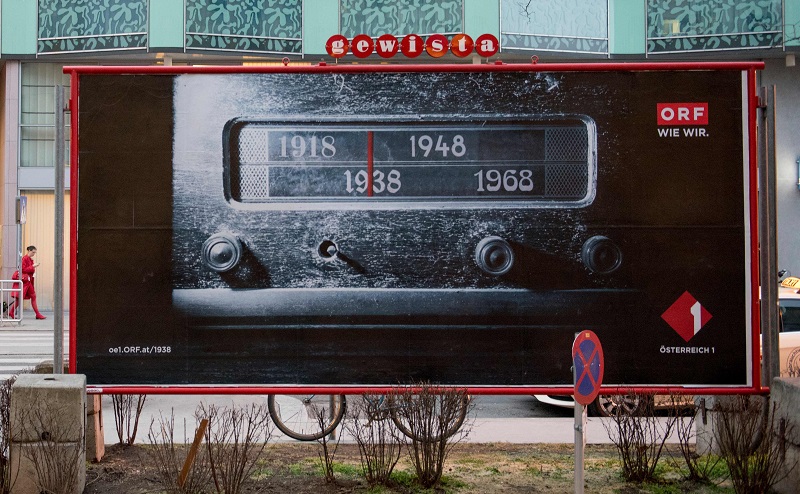Austria marks 80 years since annexation by Hitler

VIENNA - Austria marked on Monday 80 years since its annexation by Nazi Germany, with President Alexander Van der Bellen warning against renewed racism in a country where the far-right forms part of the government.
"Austria shares responsibility for the atrocities of National Socialism," Van der Bellen told a special ceremony in Vienna's Hofburg palace that included ministers from the nationalist Freedom Party (FPOe).
He said that the "lesson is that discrimination is the first step towards dehumanisation, that racism and above all anti-Semitism didn't disappear and still exist, and that it is important to raise one's voice and stand up against all inhumane ideologies."
In common with other European countries such as Germany and Italy, Austria has seen a rise in support for far-right parties. Elections last year brought the FPOe into government in coalition with Chancellor Sebastian Kurz's conservatives.
The FPOe, founded by ex-Nazis in the 1950s and one of Europe's most established far-right parties, has sought to soften its image, rejecting racism, anti-Semitism and intolerance and ejecting members who step out of line.
FPOe head and Deputy Chancellor Heinz-Christian Strache, who flirted with neo-Nazism in his youth, on Saturday appeared on Austrian television alongside other leading politicians for the Anschluss commemorations.
Strache said it was everyone's individual responsibility to remember "the (Nazi) terror regime that murdered people on a large scale because of their religion, their origin and their political opinions."
Strache, 48, supports the idea of a new monument in Vienna listing the names of the 66,000 Austrian Jews killed in the Holocaust and last month appointed a committee of historians to delve into the party's history.
- Controversies -
But since joining the ruling coalition, the FPOe has found itself embroiled in a string of embarrassing controversies over its past.
In January, for example, a leading FPOe candidate in regional elections quit the party because of a scandal over song texts allegedly in a right-wing student fraternity songbook praising the Holocaust.
The lyrics included "Step on the gas... we can make it to seven million", a reference to the six million Jews killed by the Nazis.
The FPOe's position regarding the Austrian state has also long been ambiguous, with a strong current within the party -- particularly among student fraternities -- viewing Austria as part of a wider pan-German or "Greater German" identity.
Austria's main Jewish organisation, the IKG, refuses to meet any FPOe ministers.
- Eyewitnesses -
On March 12, 1938, Adolf Hitler ordered 200,000 soldiers, SS officers and police to invade Austria, his native country, subsequently declaring its "Anschluss" ("annexation") into the Third Reich.
Three days later euphoric crowds welcomed him to Vienna.
Many events marking the Anschluss anniversary feature eyewitnesses, while public debates will focus on the responsibility of Austria and ordinary Austrians in Hitler's crimes.
Talking about such issues in public was almost unheard of until the late 1980s, as Austria preferred to hide behind the status of Nazi victim that the Allies had officially conferred on it.
Such denial has prevented Austria from embarking on the painful self-examination and coming to terms with the past that Germany has undertaken.
Austrian conservatives began paving the way for Nazism as early as 1933 when they put an end to parliamentary democracy, then crushed the Social Democrats in 1934 and set up a one-party regime.
In a country in the throes of an identity crisis following the disintegration of the Austro-Hungarian empire, and in full economic slump, anti-Semitism flourished as early as the 1920s.
"Everything had already long been ready by the time the Nazis arrived," Kitty Suschny -- who was just 13 in 1938 -- told a conference, recalling that a ban on "dogs and Jews" was imposed overnight in the grounds of Vienna's Schoenbrunn Palace.
Kurz, Europe's youngest leader at just 31, said on Monday his was "one of the last generations to be able to listen to witnesses from that time" and that "for too long Austria avoided its responsibilities".


Leave Comment